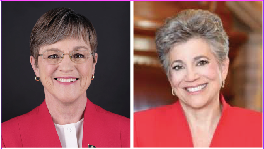TOPEKA – The 2019 Kansas legislative session began with older Kansans facing a number of serious issues. Progress was made on a scarce few of them, although there is the possibility that more will be done when lawmakers return for the May wrap-up session.
Many important legislative protections for older adults did not receive even a hearing or the committee action needed to proceed toward passage. Here are some problems identified by Kansas Advocates for Better Care that did not get addressed:
• Inadequate and delayed inspection oversight of adult care facilities. Currently, there are too few inspectors to provide for the health safety of older Kansans.
• Misuse of anti-psychotic drugs on adults with dementia. Kansas ranks 42nd worst in the nation for misuse in nursing homes.
• Allowing workers in adult care homes to work without a clear background check for 60 days, and relieving facilities from any responsibility when harm occurs.
• Medicaid eligibility determination backlog which prevents elders from getting services at home or in a facility
The Legislature adjourned its regular session April 5 with a budget in “pending” status, delaying key decisions until it reconvenes in early May. The House and Senate were at an impasse on Medicaid expansion, which as proposed by Gov. Laura Kelly, could cover as many as 150,000 adults not currently eligible for KanCare.
As executive director of Kansas Advocate for Better Care, I spoke and testified throughout the session to legislative committees about the connection between facility understaffing, lack of in-home care services and the misuse of antipsychotic drugs, along with concerns about poor quality care and abuse issues.
Some measures advocated by KABC which remain “alive” and could be acted on include:
• House Bill 2034, which would enact supported decision-making agreements to provide a statutory/legal option for adults, including those with cognitive challenges and conditions, who want to retain decision making authority but with assistance. The legislation differs from Durable Powers of Attorney and from Guardianship/Conservatorship which give another person the authority to act on behalf of an individual.
• Senate Bill 232, which would require the person or entity applying for a license to operate an adult care facility to show evidence of access to sufficient working capital necessary to operate the facility. In 2018, 22 facilities were taken over by the State when the licensee had inadequate funds to pay staff, purchase food and placed frail elders in unsafe conditions.
KABC also supports a proposal that would increase the amount of social security or other income a person who receives KanCare/Medicaid benefits is able to keep and use to pay for housing, food, utilities and other necessities when he or she lives at home and receives services under one of the seven Medicaid waivers, including the Frail Elderly waiver. KanCare only allows an older adult living and receiving services at home to keep $747 per month which it seriously inadequate to cover their basic needs.
The budget conference committee agreed to add $12.4 million to increase the protected income level to $1,177 a month for Medicaid Home and Community Based Services (HCBS) waiver services recipients and for those on the Program for All-Inclusive Care for the Elderly (PACE). That’s less than hoped for, but would represent the first significant increase in over a decade to help more seniors remain at home.









